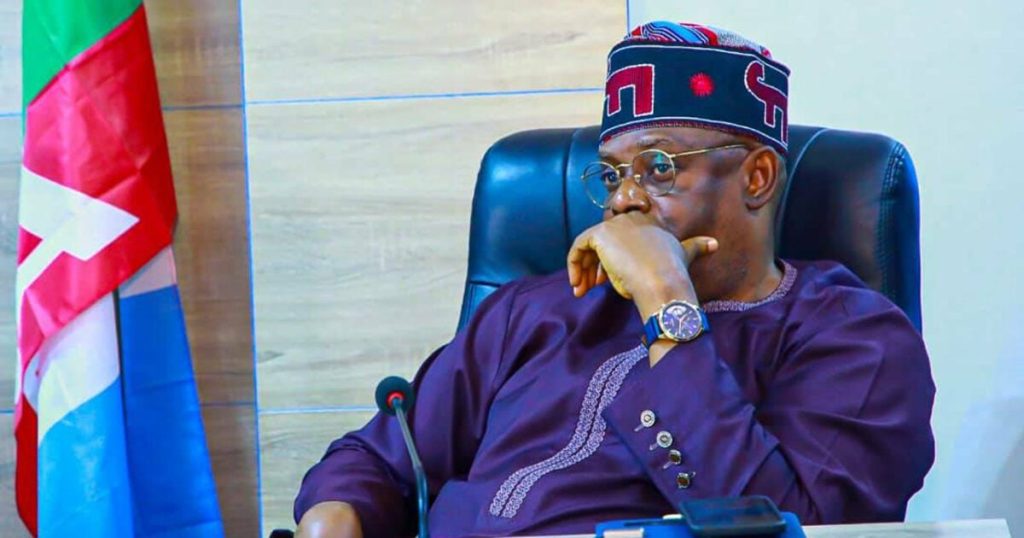Paragraph 1: The Genesis of the Intervention
Honorable James Faleke, a lawmaker representing the Ikeja Federal constituency in Nigeria’s National Assembly, has launched a substantial agricultural support program for farmers in Kogi State. The initiative, valued at over N150 million, is designed to mitigate the adverse effects of recent food price declines on farmers’ livelihoods. This price drop, while beneficial to consumers, has dealt a significant blow to agricultural producers, making it difficult for them to recoup their production costs and earn a living. Recognizing this critical challenge, Faleke’s intervention provides farmers with crucial agricultural inputs, training, and financial assistance to help them navigate these difficult economic times.
Paragraph 2: Collaborative Approach and Implementation Strategy
The project is being implemented in collaboration with the Federal College of Fisheries and Marine Technology Lagos and Bright-tech Resources Limited, leveraging their expertise and resources to ensure the program’s effectiveness. Dr. Tunde Arosanyin, a consultant to Faleke’s agricultural project, highlighted the comprehensive nature of the intervention, which commenced in June and spans all three senatorial districts of Kogi State. The program includes the provision of essential agricultural inputs such as sprayers, herbicides, high-quality seeds, liquid organic fertilizer, and direct cash assistance to alleviate immediate financial burdens faced by farmers.
Paragraph 3: Empowering Farmers through Capacity Building and Practical Experience
Beyond material support, the initiative places a strong emphasis on capacity building. Beneficiary farmers participate in training programs focused on various agricultural value chains, including cassava cultivation and fisheries management. This training equips farmers with improved agronomic practices, enabling them to enhance their productivity and efficiency. Further reinforcing practical learning, the project incorporates demonstration farms spanning over 150 hectares of cleared and prepared land. These demonstration farms offer farmers hands-on experience and serve as valuable models for implementing improved farming techniques. Motorized boreholes have also been installed in certain locations to ensure reliable water access for irrigation, further enhancing agricultural productivity.
Paragraph 4: Addressing the Double-Edged Sword of Falling Food Prices
Arosanyin explained the complex dynamics of the recent food price decline, acknowledging the positive impact on consumers but also emphasizing the severe strain it places on farmers. While President Bola Tinubu’s efforts to reduce food prices are laudable in terms of consumer welfare, farmers are struggling to sell their produce at profitable prices. Consequently, Faleke’s intervention is strategically designed to address this specific challenge by providing targeted support to farmers, empowering them to weather the economic storm and continue their vital role in food production. This support aims to stabilize their incomes and prevent them from abandoning agriculture due to financial hardship.
Paragraph 5: Impact on Beneficiaries and the State’s Economy
The project has already reached 165 farmers across Kogi State, with tangible benefits reported by those involved. One beneficiary, Mr. Mohammed Haruna from Lokoja Local Government Area, praised the training program for expanding his knowledge of best practices in cassava and fisheries value chains. He expressed gratitude for Faleke’s support, emphasizing its positive impact on the well-being and livelihoods of farmers in the state. The comprehensive nature of the intervention, combining both material and educational support, is expected to contribute significantly to the overall improvement of the state’s economy and the lives of its agricultural producers.
Paragraph 6: Contextualizing the Challenges Faced by Kogi Farmers
Kogi State holds a prominent position as a major food-producing region in Nigeria, contributing significantly to the nation’s agricultural output with crops like cassava, rice, maize, yam, and a burgeoning fish farming sector. Despite this crucial role, farmers in the state consistently grapple with several recurring challenges that impede their progress and profitability. Insecurity, inadequate storage facilities, and limited government support are persistent issues that undermine their ability to earn a sustainable living from agriculture. The recent drop in food prices further exacerbates these pre-existing difficulties, underscoring the critical need for interventions like Faleke’s initiative to bolster the agricultural sector and support the livelihoods of those who dedicate their lives to feeding the nation.


